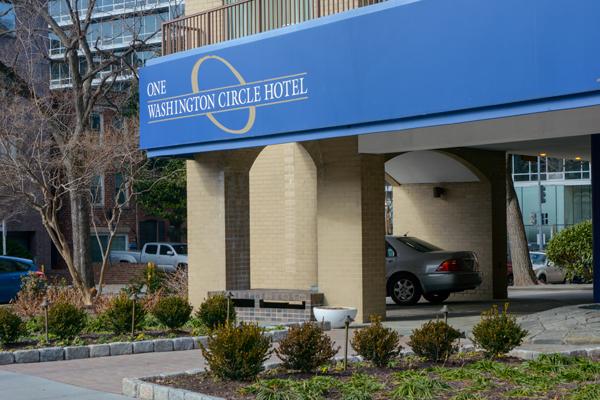D.C. businesses are expecting to cash in on inauguration.
The District expects to draw as many as 1 million visitors to the city for the inauguration and surrounding protests, and to generate $1 billion, according to The Washington Post and The Washington Times. Experts say the initial concerns about low attendance for President-elect Donald Trump’s inauguration have dissipated, and while the number of people and revenue won’t reach the level of President Barack Obama’s 2009 inauguration, they should be similar to his second ceremony in 2013.
Danielle Davis, the director of communications for D.C. tourism agency Destination DC, said in an email that the level of demand for hotels in the city is currently on par with Obama’s 2013 inauguration when hotels were about 67 percent full. D.C. has gained an additional 4,000 hotel rooms in the past four years, she added. The city now has 31,156 hotel rooms, according to D.C. Press.
“While some hotels are fully sold out, others still have availability,” she said. “We won’t know occupancy in full until a few days after the inauguration.”
The average occupancy rate for Obama’s first inauguration was 96.8 percent, with the average daily hotel rate at a high $602 per night, she said, citing STR Global Hotel Market data. Destination DC expects similar occupancy rates to Obama’s second inauguration, which were about 30 percent lower.
Davis said her office has been receiving a high volume of calls and web traffic on their inauguration website, but she added that other weekend events like the Women’s March on Washington, scheduled for Saturday, are adding to the already-high demand for space.
Airbnb, a company that allows people to rent out their homes to visitors, said in a release Friday that Inauguration Day will be the biggest rental date yet for the company’s D.C. branch.
“Today, more than 15,100 guest arrivals are booked for this three-day period, with 13,000-plus guests booked for the evening of Jan. 20, 2017 – representing the biggest night ever for Airbnb arrivals in the District of Columbia,” the release stated.
Airbnb is expected to bring in nearly $6 million dollars for hosts, which is 10 times more the amount from the 2013 inauguration, and those guests are projected to spend nearly $5 million at D.C. businesses, according to the release.
Airbnb’s popularity has also grown over the past few years, which likely contributed to the increase. In September of 2012, the company was worth $1.3 billion, but last year it reached a $25 billion value, according to The Telegraph and Business Insider.
Marco Burlimann, the guest experience manager at One Washington Circle Hotel, said the hotel had two rooms left for Friday night and a handful for Thursday and Saturday nights. The hotel has a total of 151 rooms, according to Expedia.
He added that the numbers are similar to Obama’s second inauguration, although he said guests started booking rooms much later this year than they did for previous inaugurations. He declined to comment on the revenue the hotel was expected to bring in during the inaugural weekend.
Maggie Daniels, a professor of hospitality, tourism and event management at George Mason University, said in an email that the spending by tourists for the 2017 inauguration compared to the 2009 event should be much lower, even when adjusting for inflation.
“From a tourism perspective, the basic components of economic impact do not vary dramatically from year to year or when comparing events,” she said.
Daniels added that hotels and restaurants gain the most revenue from outside spending, with retail and transportation revenues close behind. Visitors to D.C. spend their money mainly at hotels, restaurants and museums, she said.
The money D.C. residents spend should not be included when determining the inauguration’s economic impact for the city, Daniels said.
“The assumption is that those same funds would have been spent elsewhere in the local economy if the event had not taken place,” she said.





